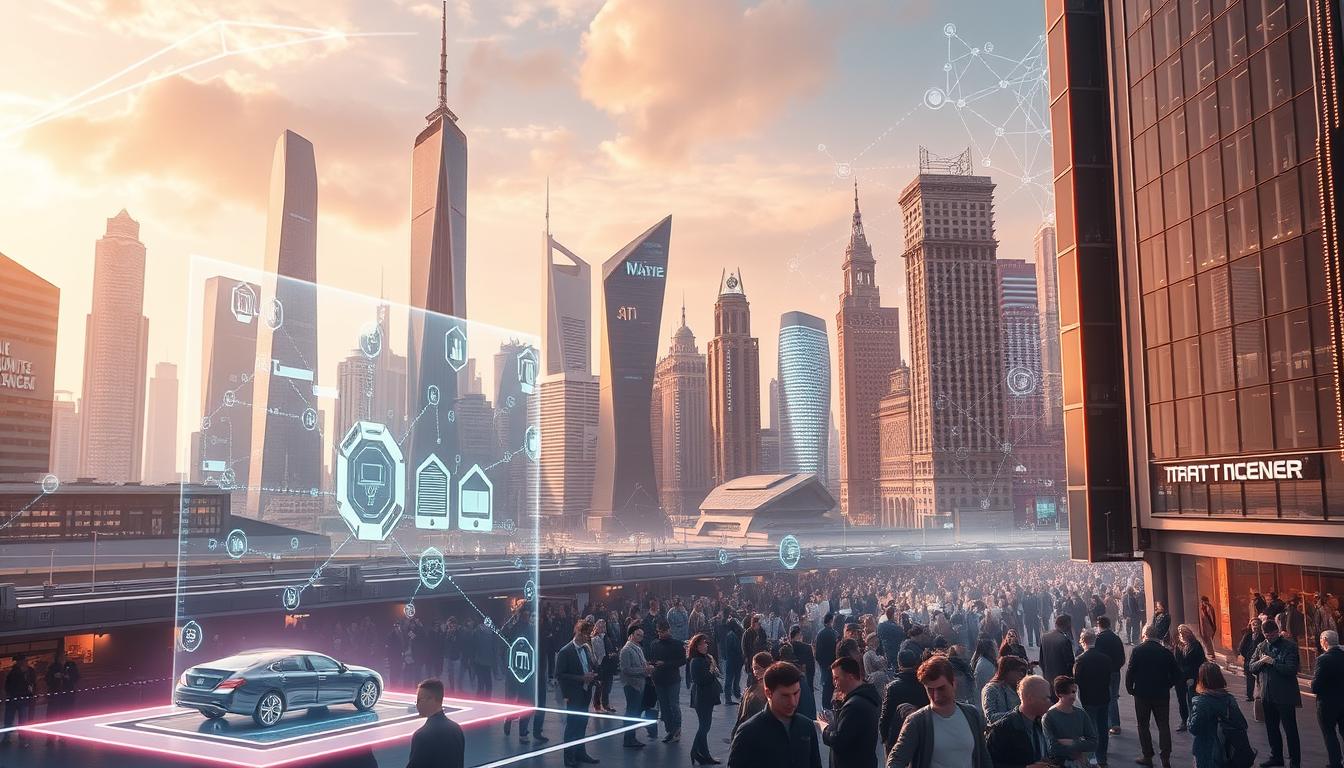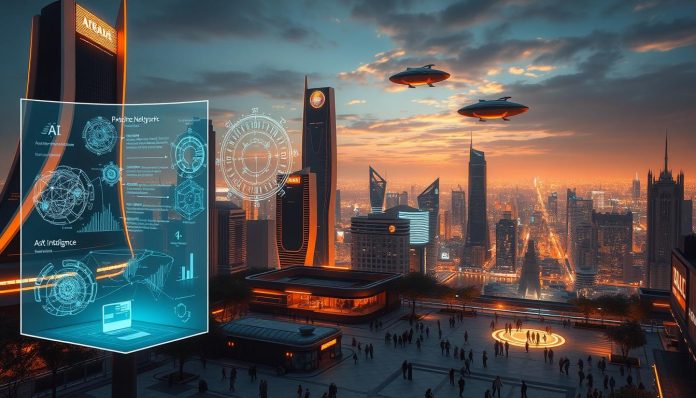In the near future of 2025, the field of Artificial Intelligence is rapidly changing. The massive influence of Generative AI has preconditioned the emergence of a new period in the development of AI.
Technology has changed industries and is moving towards this transformation. The future of AI is promising as it helps not only in enhancing healthcare performance but also in streamlining production systems.
Key Takeaways:
- It is predicted that the future of AI will introduce a lot more than Generative AI.
- Other sectors like the healthcare and the manufacturing industry will also gain a lot.
- The use of AI will keep being pushed by the technological advancements.
- AI Trends in 2025 will be directed at practical applications and integrations.
- The AI development will result in more advanced and functional systems.
The History of Artificial Intelligence: Evolution after ChatGPT and DALL-E:
Artificial intelligence is at the edge of a new wave, something more advanced than the existing status of Generative AI embodied by applications such as ChatGPT and DALL-E. Although these models have demonstrated exceptionally good ability to produce human-like text and images, that is only the tip of the iceberg as far as AI is concerned.
Generative AI achieved great progress in recent years, and it is being used in different industries. Artificial Intelligence (AI) is used in content creation, customer care, and more advanced solutions to complicated problems. Nevertheless, in order to see the full potential of AI, we need to discuss it in its present form and in its limitations.
The present condition of Generative AI:
The models of generative AI, as developed at ChatGPT and DALL-E, have proven capable of learning on massive data volumes and producing content that is sometimes indistinguishable to work produced by people in the same manner. These models are implemented on deep learning, such as Generative Adversarial Networks (GANs) and Transformers.
This is because the level of Generative AI that is being witnessed today is that that is capable of processing and creating complex forms of data such as text, images, and even music.
| AI Model | Primary Function | Notable Features |
| ChatGPT | Text Generation | Conversational AI, Contextual Understanding |
| DALL-E | Image Generation | Text-to-Image Synthesis, Creative Outputs |
| Multimodal AI | Multi-Data Type Processing | Integration of Text, Image, and Audio Inputs |
Weaknesses of the Current AI models:
Although it has made great progress in Generative AI, there are major shortcomings of the current AI models. Among the main challenges is the fact that a large volume of training data is required, and it may be expensive and time-intensive to obtain. Also, the issue of bias in AI models and the possibility of abuse should be brought up.
The adoption of multimodal AI, that is the combination of various data types (text, images, and audio), is a huge advancement. Nevertheless, the fact that processing and interpretation of heterogeneous data modalities are more complicated also present new challenges.
The other trend is the combination of Quantum AI which is the integration of quantum computing and AI. This can address complex issues which cannot be addressed using the traditional computing architectures.

Shaping 2025 Emerging AI Technologies:
By the year 2025, the future of artificial intelligence is changing dramatically. The combination of different technologies of AI is set to transform industries and renegotiate the interaction with technology.
The Multimodal AI Systems are leading in this revolution as it allows the processing and combination of various types of data like text, images, and audio. This allows more advanced applications, such as chatbots to assist customers better and data analysis tools.
For a deeper dive into the latest AI Regulators Guide , explore our A Regulator’s Guide to AI Policy in the UK: 2025 Mandate article.
Multimodal AI Systems:
Multimodal AI is a big step in the right direction as compared to the unimodal systems of the past. These systems can help give a more in-depth insight into complex phenomena through the integration of various types of data. As an example, in healthcare, multimodal AI will be able to use medical pictures with patient histories to deliver a more accurate diagnosis.

How Artificial Intelligence will revolutionize industries by 2025:
Artificial Intelligence will be used to revolutionize the industry in a way that was never foreseeable by the year 2025. The effects of AI will be experienced in diverse areas, including health and the production industry as well as the financial industry.
Recommendation: Planning the AI-Driven Future:
The future of Artificial Intelligence is bright and promising, as we discussed in this paper. New technologies, such as Multimodal AI and Quantum AI, and the progress of Generative AI are changing the environment of different sectors.
In order to utilize the power of AI, it is essential to be aware of the trends defining the industry and the possible AI Applications. In this way, we will be able to spur progress and change in industries, whether it is medical or financial services.
The future of Artificial Intelligence is not simply a matter of technology, but a matter of developing a symbiotic cooperation of both human mind and AI potentials. To continue, it is crucial to remember about the possibilities of AI and its usage, and we must be ready to live in the AI-based future.
FAQ:
What happens to the Artificial Intelligence in 2025?
The present development of Artificial Intelligence is fast-paced, and there are major improvements in Generative AI, Multimodal AI, and Quantum AI. The AI is revolutionizing the healthcare, manufacturing, and finance industries.
What are the shortcomings of the current AI models?
The present-day AI models and generative AI in particular are restricted by enormous amounts of training data, the fear of bias and the ethical issue, as well as a lack of capability to generalize between various domains.
What are Multimodal AI Systems, and what will they do to industries?
Multi-mod AI Systems have the capability to process and combine both types of data and it is going to transform the way we interact with technology. They will cause a tremendous effect on manufacturing, finance, and healthcare industries.
What role can Quantum AI Applications play in the future of AI?
The applications of quantum AI are believed to be able to address problems that cannot be addressed at present and might result in a breakthrough in medicine, finance, and climate modeling.
What is Edge AI and how will it enhance real-time decision-making?
Edge AI takes processing power nearer to data generation points, latency is minimized and real-time decision making is enhanced. This will greatly affect manufacturing industry, finance and the transportation industry.
What do you think AI will do to the healthcare sector in 2025?
The healthcare sector will experience AIs transforming the way patients are cared about and treated, as well as the quality of treatment, and making clinical processes more efficient.
How can AI be used in the manufacturing and supply chain optimization?
AI will streamline supply chains, enhance productivity, and forecast maintenance requirements in the manufacturing industry, resulting in cost savings and increased efficiency.
What is the future of AI in the financial services business?
With the help of AI, personalized banking will become possible, risk management will be enhanced, and financial anomalies will be detected, which will make the financial system more secure and efficient.
Why is AI Ethics and Governance imperative as AI becomes more ubiquitous?
The more AI is present in society, the more powerful AI Ethics and Governance frameworks will be necessary to make sure that AI is designed and implemented responsibly.


